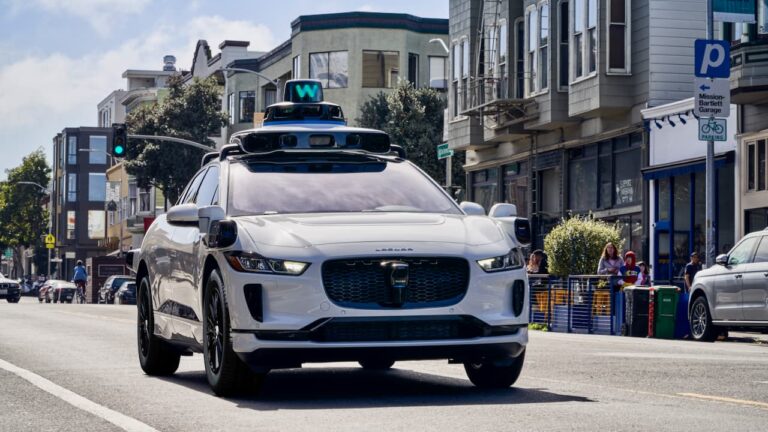All content tagged with: Regulation
Filter
Post List
CAVs Add New Urgency to Data Privacy Debate
For the past several months, this blog has primarily focused on new legal questions that will be raised by connected and automated vehicles. This new transportation technology will undoubtedly raise novel concerns around tort liability, traffic stops, and city design. Along with raising novel problems, CAVs will…Beyond the Coasts: Automated Brakes Standardization Trending Globally
The European Parliament, the deliberative institution of the European Union which also acts as a legislator in certain circumstances, approved on February 20, 2019 the European Commission’s proposal for a new Regulation on motor vehicle safety. The proposal is now set to move to the next step of…Privacy Isn’t Only About State Action
Americans have traditionally had an understandable skepticism towards government collection of our data and monitoring of our private communications. The uproar caused by the Snowden leaks in 2013 was followed by increased public attention to data privacy. In a 2014-15 survey, 57% of respondents said that government monitoring…Are Voluntary Safety Standards the Way Forward for the CAV Industry?
Recently, I wrote about the prospects for federal legislation addressing connected and autonomous vehicles. While the subject will be taken up in the new Congress, the failed push for a bill at the end of 2018 is an indication of the steep hill any CAV legislation will have to…Calls Grow for Nationwide Regulation of Connected and Autonomous Vehicles
To date, twenty-nine states have enacted legislation related to connected and autonomous vehicles (CAVs). Eleven governors have issued executive orders designed to set guidelines for and promote the adoption of CAVs. In response to this patchwork of state laws, some experts have argued that the federal government should…Exploring Singapore’s Tight Vehicle Regulation
Welcome to 2019! Over the past several months, this page has focused a lot on deployment of connected and autonomous vehicles (CAVs) in US cities. 2018 was indeed a big year for CAVs in the United States. The vehicles were deployed commercially in Arizona, California began to allow testing…Vehicle Rental Laws: Road Blocks to Evolving Mobility Models?
The laws and regulations governing mobility are inconsistent and antiquated and should be modernized to encourage innovation as we prepare for an autonomous car future. The National Highway Traffic Safety Administration (“NHTSA”) has concluded that Autonomous Vehicles, or Highly Automated Vehicles (“HAVs”) may “prove to be the greatest personal transportation revolution since the popularization of the personal automobile nearly a century ago.” Preparation for a HAV world is underway as the mobility industry evolves and transforms itself at a remarkable pace. New mobility platforms are becoming more convenient, more automated and more data driven—all of which will facilitate the evolution to HAVs. However, that mobility revolution is hindered by an environment of older laws and regulations that are often incompatible with new models and platforms. Although there are a number of different mobility models, this article will focus on carsharing, peer-to-peer platforms, vehicle subscription programs, and rental car businesses (yes, car rental is a mobility platform). All of these mobility models face a host of inconsistent legal, regulatory and liability issues, which create operational challenges that can stifle innovation. For example, incumbent car rental, a mobility platform that has been in place for over 100 years, is regulated by various state and local laws that address everything from driver’s license inspections to use of telematics systems. Although physical inspection of a customer’s driver’s license at the time of rental is commonplace and expected in a traditional, face-to-face transaction, complying with the driver’s license inspection for a free-floating carsharing or other remote access mobility model becomes more problematic. Part B of this article will review current federal and state vehicle rental laws and regulations that may apply to incumbent rental car companies and other mobility models around the country, including federal laws preempting rental company vicarious liability and requiring the grounding of vehicles with open safety recalls, as well as state laws regulating GPS tracking, negligent entrustment, and toll service fees. Part C poses a series of hypotheticals to illustrate the challenges that the existing patchwork of laws creates for the mobility industry. For instance, whether a mobility operator can utilize GPS or telematics to monitor the location of a vehicle is subject to inconsistent state laws (permitted in Texas, but not California, for example). And vehicle subscription programs are currently prohibited in Indiana, but permitted in most other states. Similarly, peer-to-peer car rental programs currently are prohibited in New York, but permitted in most other states. Finally, Part D of the article will offer some suggested uniform rules for the mobility industry.California Takes the Leap on Driverless CAVs
California has become the second state in the nation to permit connected and automated vehicles (CAVs) to operate on public roads without a safety driver. With the recent announcement that Waymo has obtained approval to test driverless CAVs in a handful of Northern California communities, the state joins…
Arizona’s Regulatory Approach to be Tested as Waymo Prepares for Commercial Rollout of CAVs
By the end of this year, Alphabet subsidiary Waymo plans to launch one of the nation’s first commercial driverless taxi services in Phoenix, Arizona. As preparations move forward, there has been increasing attention focused on Arizona’s regulatory scheme regarding connected and automated vehicles (CAVs), and the ongoing debate over…CAVs and the New Push for Privacy Regulation
For many people, syncing their phone to their car is a convenience – allowing them to make hands-free calls or connect to media on their phone through the car’s infotainment system. But doing so can leave a lot of data on the car’s hardware, even after a user believes they…

